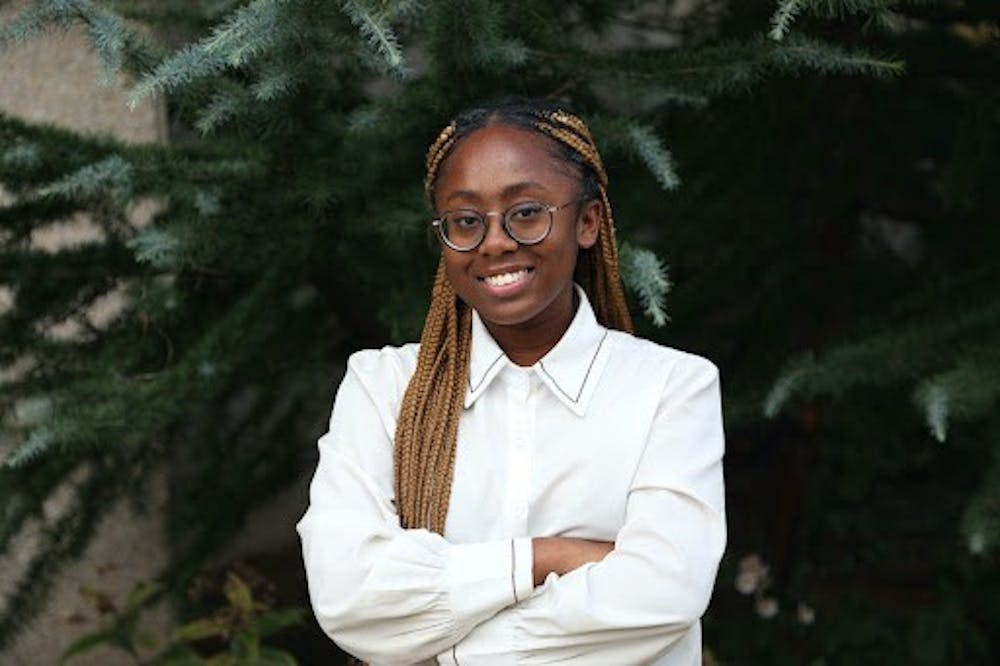Historically, we have been charmed by “firsts” — the first Black U.S. president and vice president, the first woman appointed to the Supreme Court and, within our own American University community, our first Black male and female Student Government presidents. When we heavily indulge in these identities, our ability to recognize their shortcomings and effectively critique their work as representatives of the people falls short. This issue has been present within SG and will occur during the current election.
The platforms of many candidates, past and present, include tenets of “diversity” and terms synonymous with inclusion, with the candidates often including their own marginalized identity into the mix. The fault of taking these platforms at face value is that many candidates adopt intersectional language to mask that they won’t fight for meaningful, revolutionary changes to advance the conditions of the student body.
Voting for candidates based on shared identity alone without consideration of one’s detailed, or lack of, plans for the role they’re seeking gives rise to individuals who are not committed to fighting for the conditions that would alleviate the deep-rooted issues that students face.
In the American political context, many Black Americans and non-Black citizens alike had developed a parasocial relationship with the Obamas that is premised in shared identity and seeing a member of our community in positions that historically excluded us. Yet, this idolization on the basis of his Blackness shielded President Obama from taking accountability for operating within a fascist system that exploited the working class and the Global South. Behind photo ops with families that visually represented his own, he escalated the war in Afghanistan, prioritized private companies over homeowners’ right to housing and funded $38 billion to Israel’s military defense that was used towards the mass killings of Palestinians.
Within the AU community, doubts about an individual’s ability to fulfill their elected role are almost immediately discredited if the individual holds a marginalized identity. For instance, public critiques of current SG President Chyna Brodie, the first Black woman to serve a full term as SG president, have included confirmed incidents of repeated abuse of her presidential power. These include using the influence of her popularity to control senators and SG members, privately soliciting a financial raise, threatening to publicize false, career-ending claims against the Speaker and violating campaigning rules to attain an unfair advantage.
The ability to engage in a constructive dialogue surrounding her presidency is shut down with claims of racism and the belief that one would find pleasure in censuring a Black woman. This line of thinking operates under the falsehood that proximity to oppression absolves one from partaking in any form of wrongdoing. While I agree that all critiques of Brodie should be questioned about their intentions, it’s an extreme disservice to each of us to not challenge authority and overlook the empty promises listed on a Canva-generated Instagram post.
Candidates with no racial marginalization should be held to the same scrutiny as well. Recycled talking points of “amplifying marginalized voices” hold little weight if they are confined to newsletter campaigns and passive listening during senator office hour visits. Racial justice efforts that are watered down by promises of “listening” and “learning” treat justice as though it can be acquired through the awareness of an issue instead of a clear-cut democratic process. No amount of emails to cultural student organizations that are coincidentally sent near the campaigning period can ever compete with the amount of unnoticed physical work toward the quality of life for students.
Consistent remarks that pursuing a powerful elected position isn’t for your resume, which appears to be a self-affirmation to convince yourself of this belief, won’t convince constituents that you act genuinely.
For my peers who plan to vote for your next SG representative, briefly disregard the public accolades they might’ve received for their work in the community or the amount of social media followers they have. Evaluate the level of impact they’ve made on the AU community without a title to their name and make the best judgment on whether this work will expand within an elected position. Initiate meetings with these candidates to see whether they have articulated plans for our community or merely rehashed buzzwords they’ve circulated throughout their campaign.
We indirectly define what it means to be a change agent through our election of representatives, and our methodology in doing so also reveals where our own values lie. Instead of producing changemakers, our captivation with symbolism has instead bred change opportunists.
Kayla Kelly is a senior in the School of Public Affairs.
This article was edited by Jelinda Montes, Alexis Bernstein and Nina Heller. Copy editing done by Isabelle Kravis and Leta Lattin.





